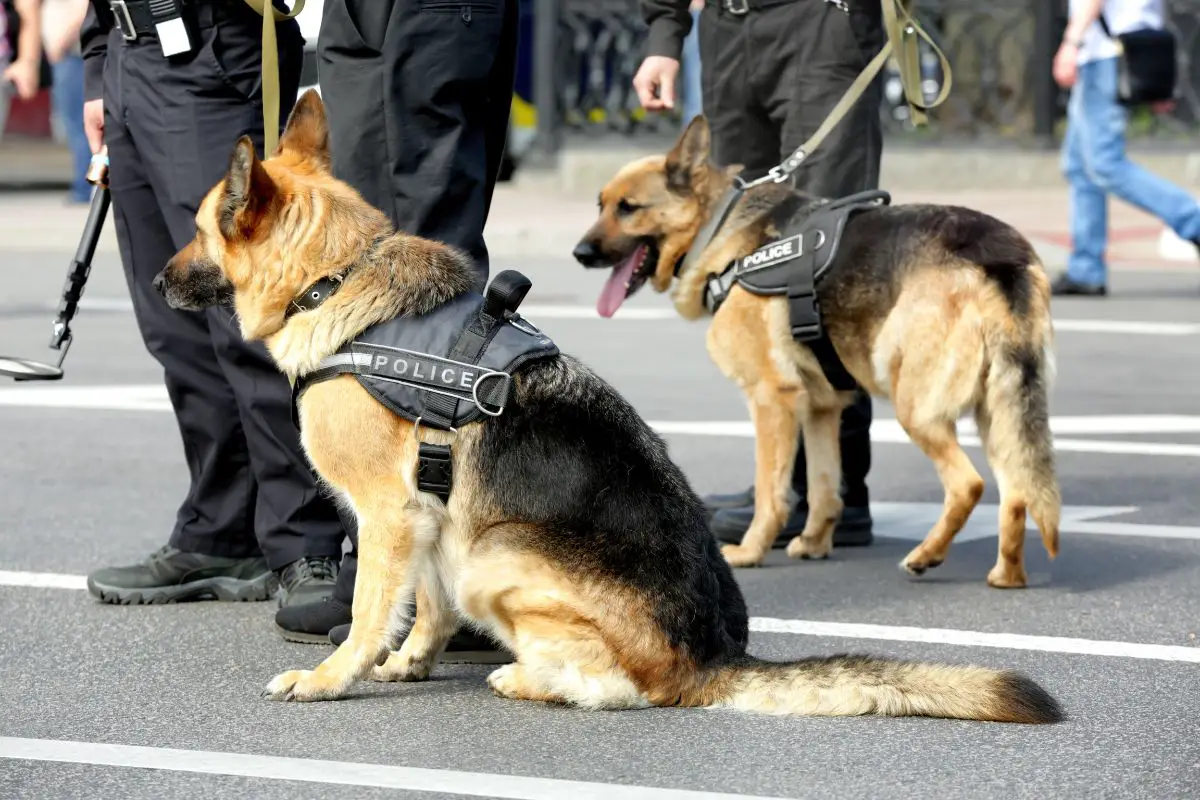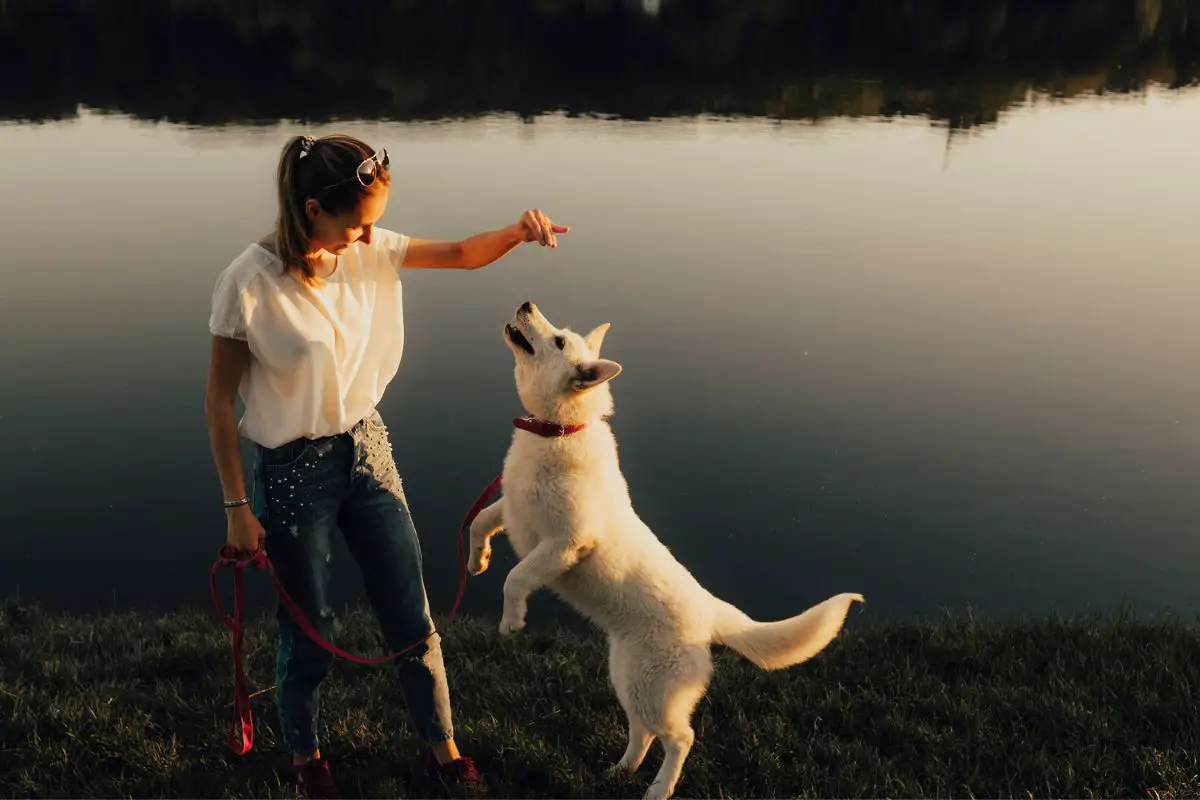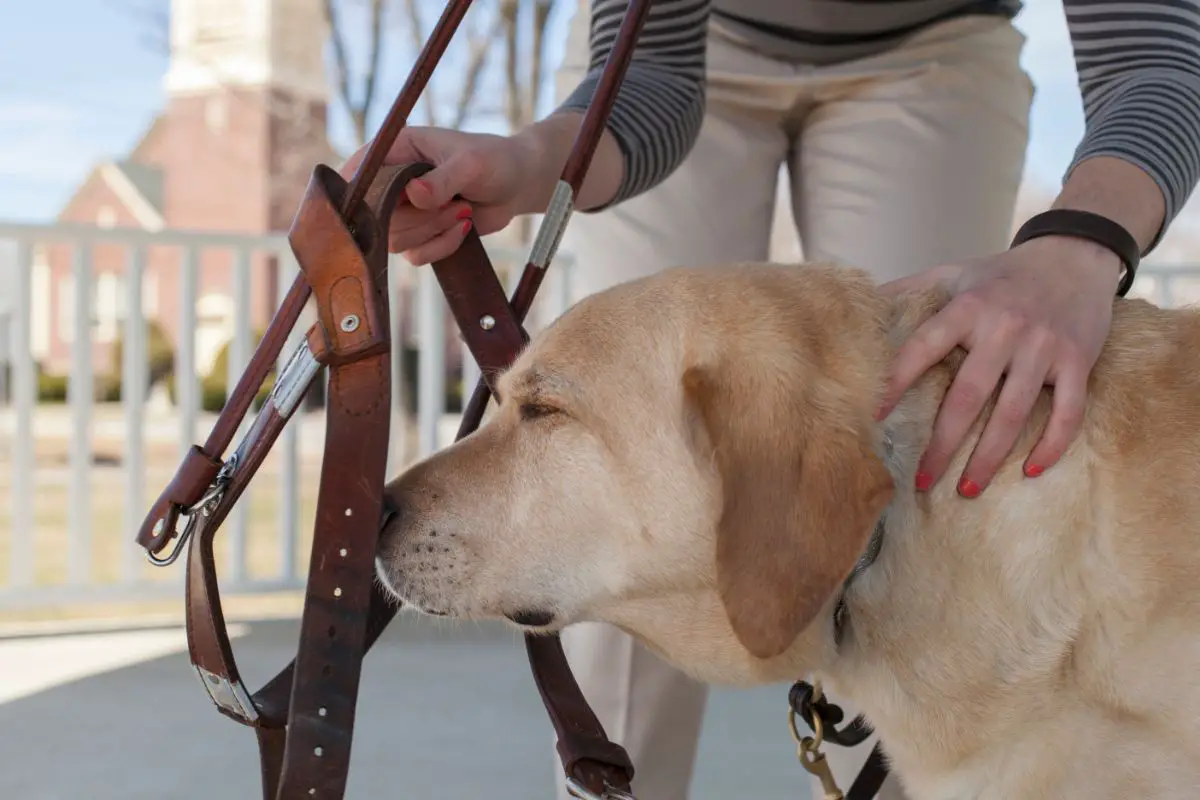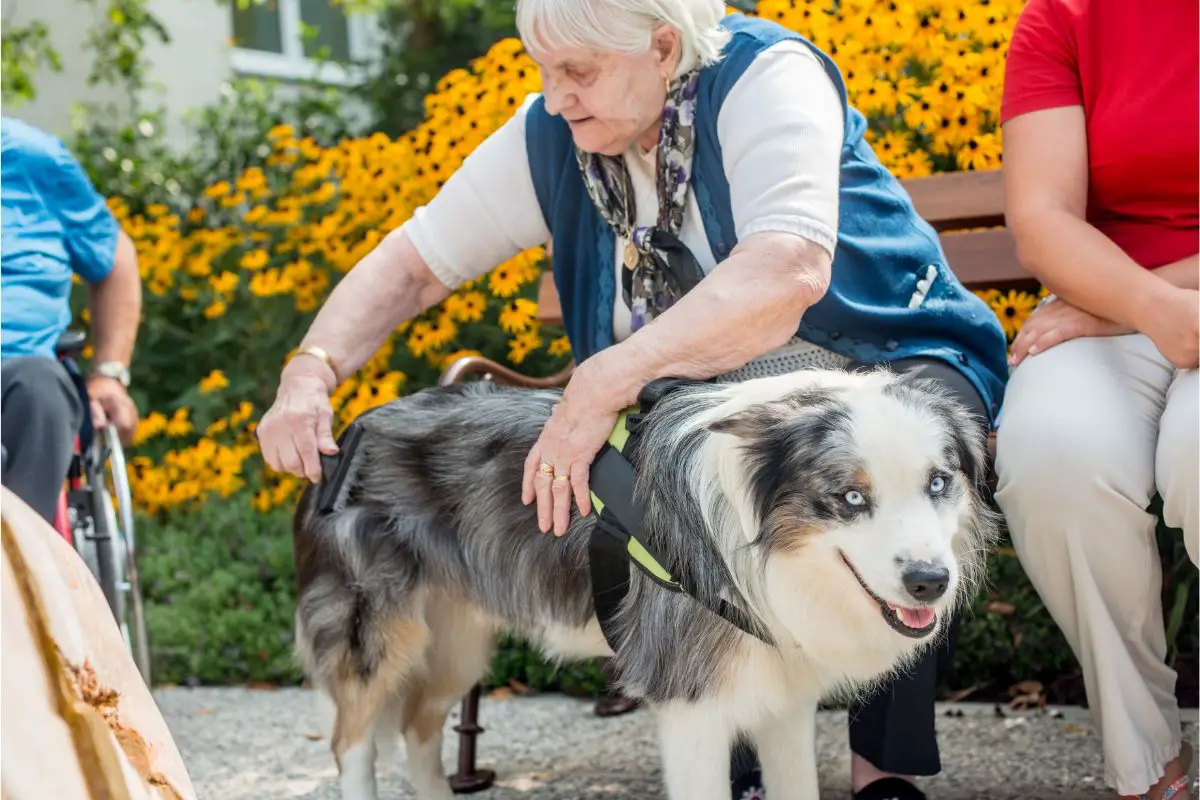Service dogs have been around for a long time, and the world is a better place for it. These hard-working animals do what no one and nothing else can.
Unfortunately, there is still a lot that people don’t know about service dogs, and why someone might have them.
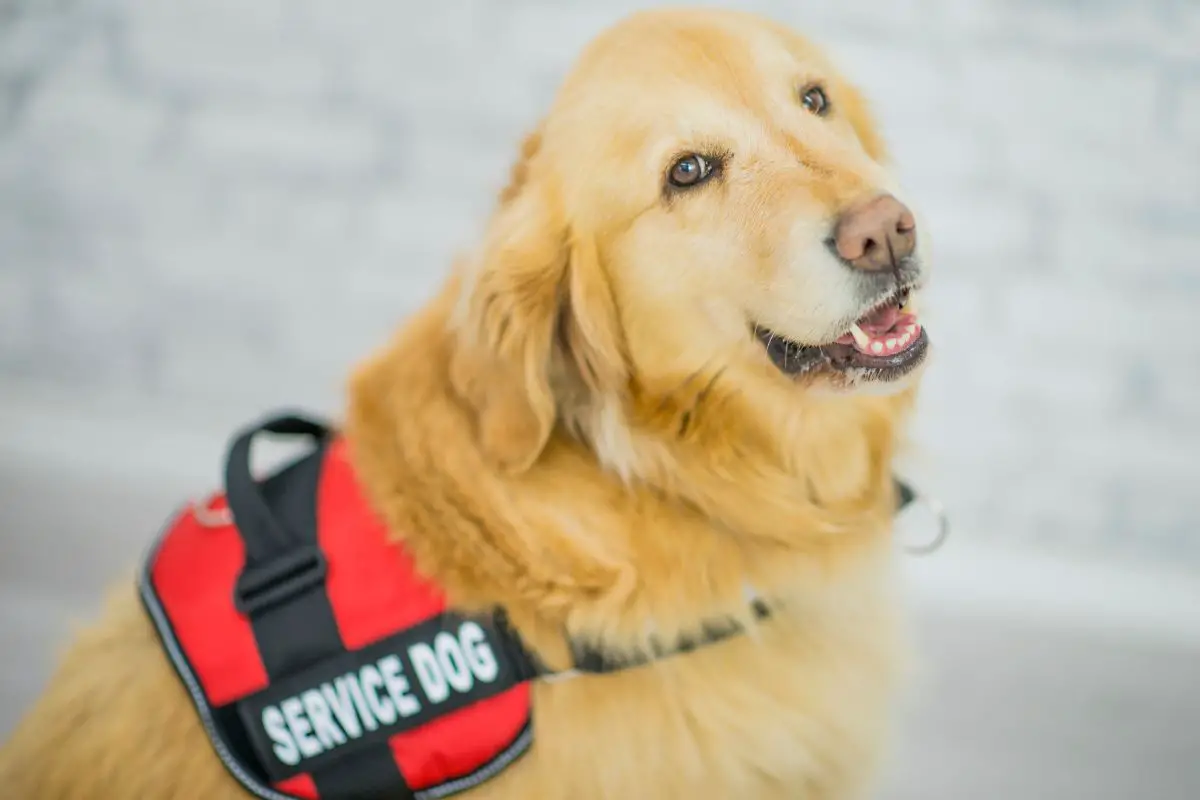
Similarly, you may not know whether you are able to get one if you have a physical or mental condition.
In this post, we will be taking a look at whether you can get a service dog for anxiety, and what that means.
Spoiler – you can! If you want to find out all about service dogs for anxiety, just keep reading. We’ll be going through everything you need to know in the section below.
Can You Get Service Dogs For Anxiety?
Yes! You can get a service dog if you have debilitating anxiety and need the support.
Having a service dog is one of the best ways to help people with anxiety. In fact, most dogs are very beneficial, but that’s another conversation!
Service dogs are there to provide emotional and physical or practical support to their humans when needed. A number of people with physical or mental health conditions can get service dogs.
These types of dogs are likely most common with individuals who have visual impairments and act as guide dogs. However, they can be great for people with a multitude of other conditions, too!
Service dogs are perfect for individuals who experience depression, diabetes, and, of course, anxiety!
How Does A Service Dog Help For Someone With Anxiety?
A service dog can offer a lot of assistance to someone who experiences anxiety.
These dogs are known as psychiatric service dogs, and are often seen helping individuals with things like bipolar disorders, depression, and anxiety.
All psychiatric service dogs receive proper training, and are actually legally recognized by the ADA (Americans with Disabilities Act).
A psychiatric service dog might help someone with anxiety by:
- Bringing someone to help you if you are in distress
- Detecting anxiety signs in you before an anxiety attack happens
- Performing room safety checks and turning lights on (for individuals with PTSD)
- Retrieving water or medication when you are having an anxiety attack or in distress
- Bringing your phone when you are experiencing an anxiety attack
- Reminding you to take your prescribed medication at different points in the day
- Preventing unknown people and strangers from coming near you when you are in distress
- Calming you down if you are experiencing an anxiety attack by distracting you
- Providing you with deep pressure therapy to help soothe you
Which Dog Breeds Are Best For Anxiety?
It’s important to note that any breed of dog can be a service dog. However, there are a few breeds that are known to be great for psychiatric service dogs.
This is primarily because of these breeds’ abilities to complete training to a high standard, as well as their natural temperament.
With that being said, there are five breeds that are known to be particularly good at being psychiatric service dogs:
- Poodles
- Boxers
- Golden retrievers
- Labrador retrievers
- German shepherds
Benefits Of Having A Dog
Whether you have a service dog or not, there are several benefits to simply owning a dog.
Not only does interacting with animals help reduce things like cortisol levels and lower the heart rate, but they are comforting.
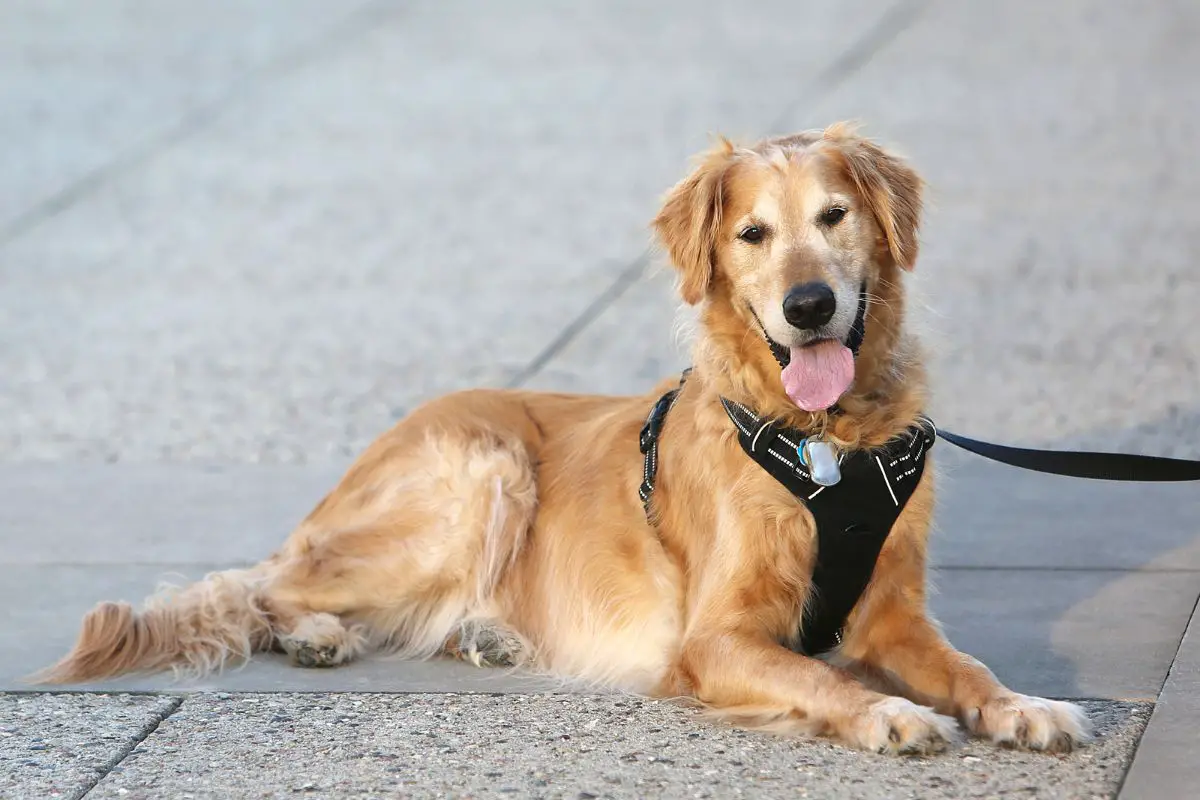
There are four primary benefits that you experience simply by owning a dog:
- They provide stress relief – according to a 2015 study, spending time with animals or pets can boost happiness while reducing anxiety and stress in individuals. Dogs are also great for reducing the risk of experiencing anxiety in children
- They get you outside – you need to walk your dog, and spending time outdoors increases your vitamin D intake. Vitamin D is essential for proper health, and it boosts happiness.
- They force you to exercise – exercise is a great way to decrease stress and anxiety. Having a dog forces you to exercise, which subsequently improves your own mental health and overall happiness.
- They are good company – having a dog is simply great company! You are less likely to feel lonely or isolated if you have a dog by your side. They offer love and companionship like no one else can.
Criteria For Having A Service Dog
There are a few key criteria that need to be met in order for someone to have a service dog.
Since dogs require a lot of responsibility, their safety is always of paramount importance, and it’s essential to ensure that owners can properly care for them.
The criteria are as follows:
- You must love dogs
- You need to have a stable home environment
- You must have a physical or debilitating psychiatric condition or disability
- You must be able to communicate well
- You must have a lot of patience
- You must have a letter of recommendation from a licensed doctor or mental health professional
- You must be able to properly care for your service dog
- You must be able to train your service dog
- You must be able to attend a handler training program
- You must have the financial capability to maintain and care for your service for for 12 or more years
Anyone who does not meet the criteria will not be able to get a service dog. It’s important to remember that these dogs are more than just working animals – they are part of the family.
If you cannot understand that they require love, patience, money, and training, you are not a suitable candidate to get a service dog.
Final Thoughts
Having a psychiatric service dog for things like anxiety is a widespread occurrence. It has many benefits, and can greatly improve the quality of life for anyone who has one of these dogs.
Anxiety can be debilitating, but psychiatric service dogs offer support that you can’t find anywhere else.
If you are struggling with anxiety and feel like you need help in your life, why not consider checking to see if you are eligible to get a support dog?
- Are Antlers Safe For Dogs? - January 14, 2024
- Can Dogs Eat Honey Nut Cheerios? - December 23, 2023
- Natural Deworming Remedies for Your Dog - December 18, 2023

